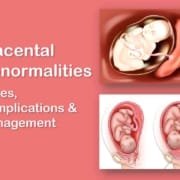Rib Pain During Pregnancy: Causes, Relief, and Sleep Advice
Pregnancy is a time of joy, excitement, and change, but it can also bring unexpected discomforts, such as rib pain. Rib pain during pregnancy is a common experience, particularly as the baby grows and places pressure on the ribcage. Understanding the potential causes and how to find relief can help pregnant women manage this pain more effectively and ensure it doesn’t interfere too much with daily life.
Rib pain can vary in intensity and location, sometimes affecting the right or left side, and can occur at any stage of pregnancy. While most rib pain is harmless and results from the natural expansion of the uterus and the baby’s movements, it’s important to be aware of other potential causes, especially when the pain is severe or persistent.
Causes of Rib Pain During Pregnancy by Trimester
First Trimester
Although rib pain is less common during the first trimester, some women may experience discomfort in the ribs as their body begins adjusting to pregnancy. One of the key culprits is heartburn, a common pregnancy symptom caused by the relaxation of the esophagus due to the hormone relaxin. This relaxation can allow stomach acid to flow back up, causing burning sensations that radiate to the ribs. While heartburn is often associated with later stages of pregnancy, some women experience it early on, leading to chest or rib discomfort.
Additionally, hormonal changes and the body’s preparation for the growing uterus can cause mild discomfort around the rib area, although this is less common in the early weeks.
Second Trimester
As the pregnancy progresses into the second trimester, rib pain may become more pronounced, particularly on the left side or right side depending on the baby’s position. During this stage, the expanding uterus begins to press against the diaphragm and ribcage as it makes room for the growing fetus. This pressure can lead to discomfort, particularly under the breasts and along the sides of the ribcage.
For many women, this pain can be described as a dull ache or tightness. It may also come and go depending on the baby’s movements, posture, and activities throughout the day. In some cases, women experience pain on the left side of the ribcage, which can be exacerbated by the baby’s position or from changes in body posture.
Left Rib Pain During Pregnancy in the Second Trimester
Many women specifically report left rib pain during pregnancy, especially in the second trimester as the baby grows. The left side is often affected because the stomach and other organs are located on this side of the body, and as the uterus expands, it may push these organs upward, causing pain and discomfort. The baby’s kicks and movements can also cause more noticeable pain on one side of the ribs.
Round ligament pain is another common issue during the second trimester. These ligaments stretch to support the growing uterus, and the stretching can sometimes cause sharp pains near the ribs, especially during sudden movements or changes in position. While this type of pain is often sharp, it typically subsides after resting or changing positions.
Third Trimester
By the third trimester, rib pain tends to intensify for many women as the baby grows larger and the uterus expands further. At this point, the baby’s movements and positioning play a major role in causing rib discomfort. As the baby shifts into a head-down position, their legs and feet may press against the ribcage, resulting in sharp pains, particularly when the baby kicks or stretches.
Additionally, carrying the extra weight of the baby can strain the muscles around the abdomen and ribs, leading to aches and pains. This type of pain is most often felt under the breasts, on the sides of the ribcage, or directly beneath the ribs. Women experiencing left rib pain during pregnancy may notice that it becomes more intense in the third trimester due to the baby’s positioning or due to increased pressure on the diaphragm and surrounding muscles.
Other Causes of Rib Pain During Pregnancy
Gallstones
Gallstones can form during pregnancy due to increased levels of estrogen and changes in the digestive system. They may cause pain in the upper right side of the abdomen, but this pain can sometimes be mistaken for rib pain. If you experience intense pain along with nausea or vomiting, it’s important to seek medical advice as gallstones may require treatment after pregnancy.
Urinary Tract Infections (UTIs)
A UTI is another potential cause of rib pain, especially in the later stages of pregnancy. As the baby grows, it may place pressure on the bladder, making it harder to fully empty, which increases the risk of infection. Rib pain resulting from a UTI often feels like a dull ache or pressure in the lower ribs or back, and it is usually accompanied by symptoms such as burning during urination, fever, and an urgent need to urinate.
Preeclampsia
Preeclampsia is a serious pregnancy complication that typically occurs in the second or third trimester and can cause rib pain. The pain is usually felt on the right side under the ribs, near the liver, and is often accompanied by other symptoms such as high blood pressure, severe headaches, and vision disturbances. If preeclampsia is suspected, it’s crucial to seek immediate medical attention as it can be life-threatening for both mother and baby.
How to Relieve Rib Pain During Pregnancy
While rib pain during pregnancy can be uncomfortable, there are several ways to manage and relieve the discomfort:
1. Adjust Your Sleeping Position
Finding a comfortable sleeping position is crucial, particularly if you’re dealing with left rib pain during pregnancy. Sleeping on your left side is generally recommended as it promotes better circulation and reduces pressure on the ribcage. Using pillows to support your abdomen, back, and legs can also help alleviate pressure on the ribs and reduce discomfort. Some women find relief by sleeping in a semi-reclined position with pillows or by using an adjustable bed to elevate their upper body.
2. Gentle Stretching and Exercise
Engaging in gentle stretches, such as yoga or pregnancy-specific exercises, can help reduce tension in the muscles around the ribs. Stretching the arms, back, and shoulders can relieve tightness and improve flexibility, which may reduce rib pain. Prenatal yoga, in particular, can be beneficial as it focuses on breathing and posture, helping to alleviate discomfort in the ribs and other areas of the body.
3. Heat Therapy
Applying a heating pad or warm compress to the affected area can provide relief from rib pain. Heat helps to relax tight muscles and improve circulation. Make sure the heating pad is set to a comfortable temperature and limit usage to short intervals to avoid overheating. Warm baths can also help relax the muscles and provide overall comfort, especially before bedtime.
4. Wear Loose-Fitting Clothing
Tight or restrictive clothing can worsen rib pain by putting additional pressure on the abdomen and ribs. Opt for loose, comfortable clothing that allows for freedom of movement, especially as your belly grows. This can help reduce pressure on the ribcage and make everyday activities more comfortable.
5. Chiropractic Care or Massage Therapy
Some women find relief through chiropractic care, especially when the rib pain is related to musculoskeletal issues. Chiropractors who specialize in prenatal care can adjust the spine and ribcage to relieve pressure and pain. Similarly, prenatal massage therapy can help relax tight muscles and reduce discomfort in the rib area.
6. Over-the-Counter Pain Relievers
If rib pain becomes severe, over-the-counter pain relievers such as acetaminophen may help. However, it’s important to consult your healthcare provider before taking any medications during pregnancy to ensure they are safe for both you and your baby.
Best Sleep Positions for Rib Pain Relief
Getting comfortable at night can be challenging, especially if you’re experiencing rib pain. Here are some of the best sleep positions to alleviate rib pain:
- Side Sleeping: Sleeping on your left side is generally the best option, as it promotes circulation and reduces pressure on the ribs. Support your body with pillows under your ribs, between your knees, and behind your back.
- Semi-Reclined Position: If side sleeping isn’t comfortable, try a semi-reclined position with pillows or an adjustable bed to elevate your upper body. This position takes pressure off the ribcage.
- Use Pillows: Use pillows to support your waist and hips, and place one between your knees to keep your spine in alignment and reduce tension on the ribcage.
Frequently Asked Questions (FAQs)
Is rib pain normal during pregnancy?
Yes, rib pain is a common symptom during pregnancy, particularly in the second and third trimesters. The expanding uterus, baby’s movements, and hormonal changes all contribute to this discomfort. However, if the pain is severe, persistent, or accompanied by other symptoms, it’s important to consult a healthcare provider to rule out more serious conditions.
What causes left rib pain during pregnancy?
Left rib pain during pregnancy is often caused by the growing uterus pushing organs, like the stomach, upward, or by the baby’s movements. As the baby shifts and kicks, they may press against the left ribcage, causing pain. Heartburn and digestive issues can also cause pain on the left side, especially after meals.
How can I sleep comfortably with rib pain?
Sleeping on your left side with plenty of pillows for support can help reduce rib pain. Using a body pillow to support your abdomen and placing a pillow between your knees can help keep your spine aligned and reduce pressure on your ribs.
When should I see a doctor for rib pain during pregnancy?
If your rib pain is severe, accompanied by other symptoms such as high blood pressure, headaches, fever, or vision changes, you should seek medical attention immediately. These could be signs of a serious condition like preeclampsia or a urinary tract infection, both of which require prompt treatment.
Can rib pain during pregnancy be prevented?
While it may not be entirely preventable, there are steps you can take to minimize rib pain during pregnancy. Staying active, practicing good posture, wearing loose clothing, and avoiding heavy meals can help reduce pressure on the ribcage. Stretching and practicing relaxation techniques can also help alleviate discomfort.
Conclusion
Rib pain during pregnancy is a common discomfort that many women experience, especially in the later stages. Whether caused by the baby’s movements, the expanding uterus, or other factors such as heartburn or hormonal changes, rib pain can often be managed with simple lifestyle adjustments and home remedies.
By adjusting your sleep position, engaging in gentle exercises, and using heat therapy or massage, you can find relief and enjoy a more comfortable pregnancy. However, if the pain is severe or accompanied by other concerning symptoms, it’s essential to consult a healthcare provider to rule out any serious complications.
Pregnancy is a unique journey, and while discomforts like rib pain can be challenging, they are typically temporary and manageable with the right strategies.










